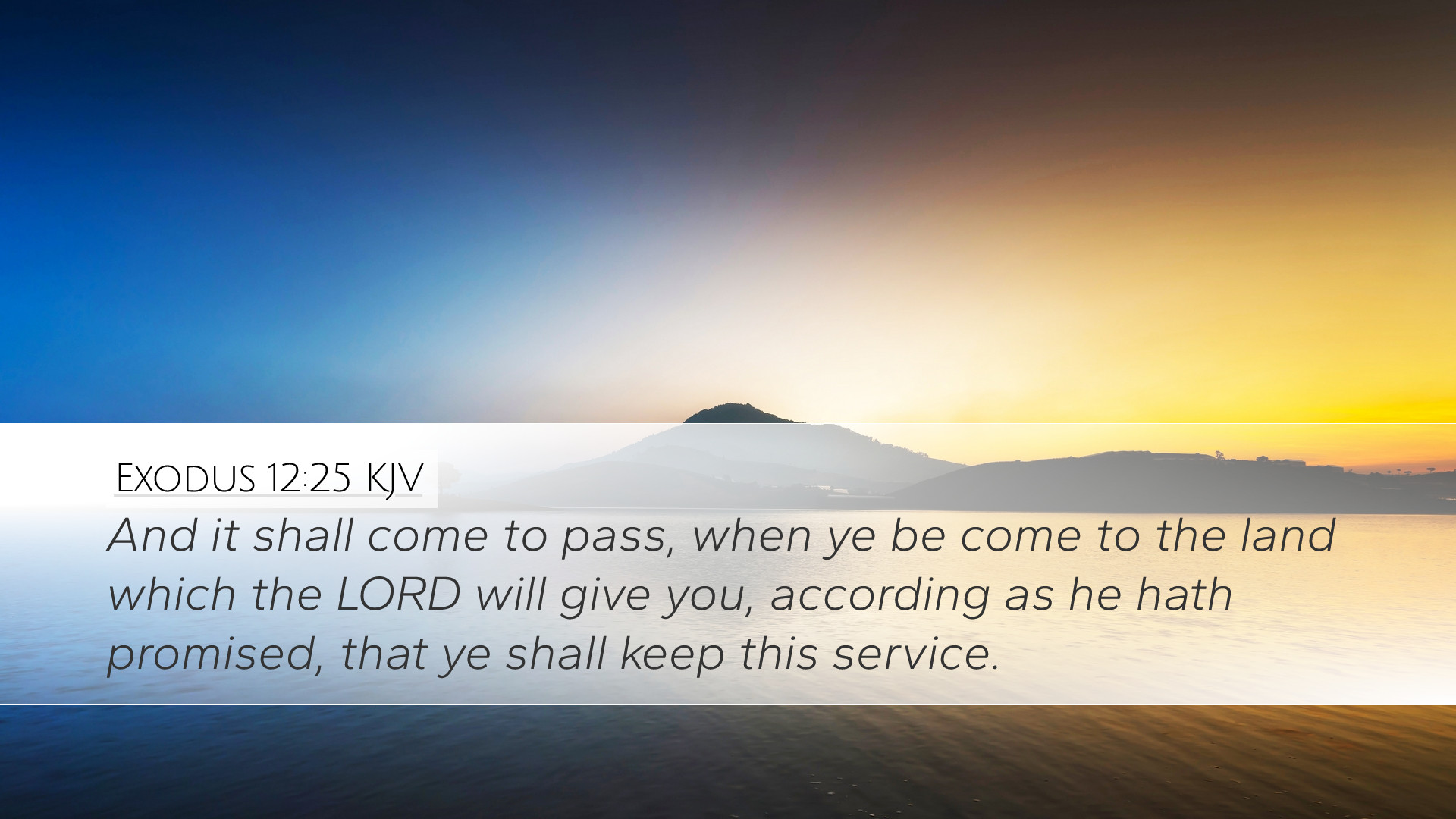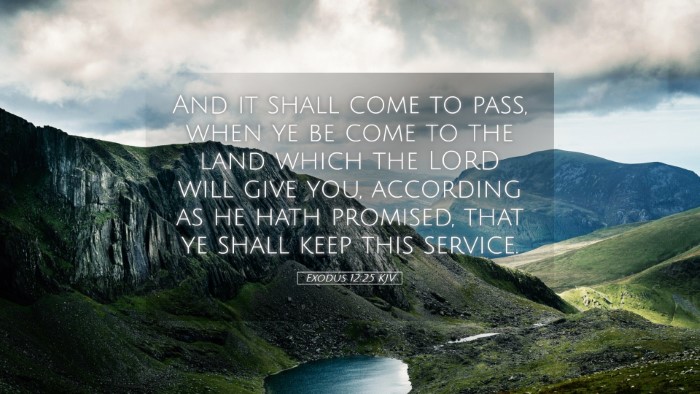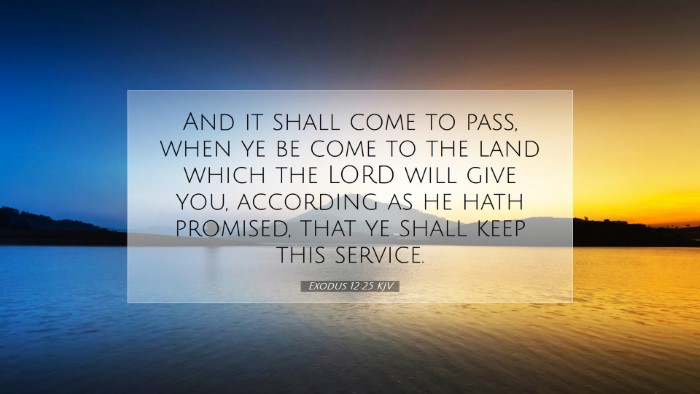Commentary on Exodus 12:25
Exodus 12:25 states: "And it shall come to pass, when ye be come to the land which the Lord will give you, according as he hath promised, that ye shall keep this service." This verse is situated within the context of God’s instruction to the Israelites regarding the Passover, a pivotal moment in their history and covenant relationship with the Lord.
Contextual Background
The preceding chapters of Exodus narrate the Israelites’ harsh enslavement in Egypt and culminate in the final plague, the death of the firstborn, which prompts their liberation. The Passover is established as a memorial event that would commemorate their deliverance and serve as a sign of God’s saving grace. In this verse, God looks forward to the time when His people will enter the promised land—a land flowing with milk and honey, a place of rest and covenant fulfillment.
Theological Insights
- The Significance of the Land: The land is often viewed as a representation of God’s promise and faithfulness. According to Matthew Henry, this promise emphasizes that God will fulfill His covenant with Abraham, Isaac, and Jacob, showcasing His unchanging nature and commitment to His people.
- Continuity of Worship: The command to "keep this service" indicates that worship and remembrance are integral to the covenant. Albert Barnes emphasizes that the acts of worship were not mere rituals but a reflection of a continual relationship with God, reinforcing the importance of tradition in faith.
- Covenant Community: The phrase reflects the communal aspect of faith. Adam Clarke notes that the act of remembrance is not just for individual Israelites but for the entire community, underlining the significance of shared experiences in covenantal understanding and unity.
Practical Applications
This verse conveys profound lessons for contemporary believers:
- Faithfulness in Future Promises: Believers are reminded that just as God fulfilled His promises to Israel, He continues to be faithful to His promises today. Engaging in this promise fosters hope during uncertain times.
- The Importance of Rituals in Faith: Worship practices, like communion and remembrance of God's past acts, resonate with the custom established by God in Exodus. Such rituals carry transformative power and maintain a connection to the divine.
- Community Responsibility: Each believer plays a vital role in the life of the church. Just as the Israelites were to engage in the Passover as a community, Christians today are called to live out their faith in congregational life and responsibility.
Historical Interpretations
Throughout history, Exodus 12:25 has been interpreted through various theological lenses:
- Jewish Tradition: For Jews, the Passover is a defining moment of their identity, celebrated annually as a reminder of liberation and covenant loyalty, emphasizing the importance of remembering God's acts through generations.
- Christian Perspective: The early Church viewed the Passover as foreshadowing Christ’s sacrifice, seeing in it an allegory pointing to the ultimate deliverance from sin through His atoning work, thus bridging Old and New Testament themes of salvation and remembrance.
Conclusion
Exodus 12:25 is an essential verse that encapsulates the essence of God's promises, the importance of communal worship, and the implications of maintaining a relationship with God through remembrance. The teachings derived from this verse resonate deeply for pastors, theologians, and laypersons alike, offering guidance for living out the faith in both personal and communal contexts.
As leaders and scholars delve into this verse, they uncover layers of meaning that challenge and inspire, calling believers to remember God’s faithfulness and to actively engage in the life of worship as a response to His covenant love.


